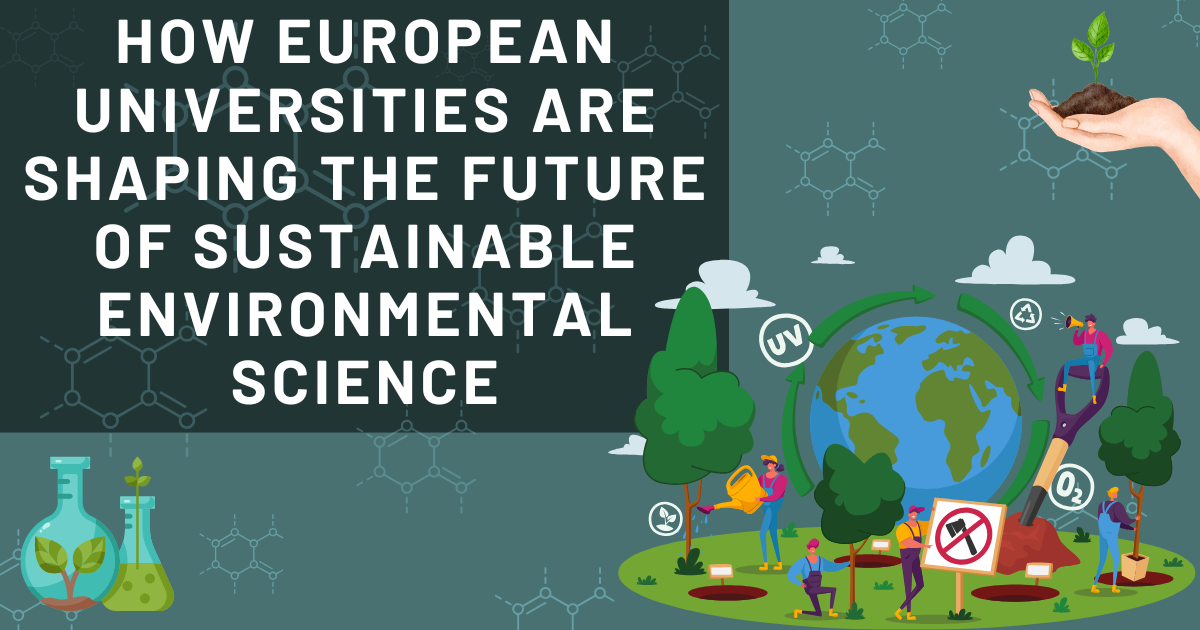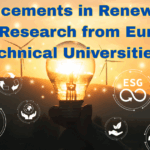How European Universities Are Shaping the Future of Sustainable Environmental Science. European Universities are playing a significant role in shaping the future of sustainable environmental science by educating students about the importance of environmental science. Education is the only method of teaching students about the sustainable development of science and the environment. To know more about the topic “How European Universities Are Shaping the Future of Sustainable Environmental Science,” read the complete article.
How European Universities Are Shaping the Future of Sustainable Environmental Science
There are several authors who have written their books emphasizing the significance of the environment and environment-related topics to decrease the ecological footprint and to make the environment sustainable. The European education system is committed to a type of sustainable development capable of combining economic, social, and cultural dynamism with cohesion, equity, intercultural and environmental protection, people’s quality of life, and recognition of their diversity, as well as expanding their opportunities, rights, and capabilities.

The universities signify the addressing of global environmental challenges through education, research and community engagement, framing it as the idea of a sustainable university. The European Union (EU) Commission has reaffirmed its commitment to implementing the 2030 Agenda for Sustainable Development to protect the environment, reduce land degradation and prevent biodiversity loss by reducing its dependence on the use of natural resources (Camilleri, 2020).
Pioneering Studies
Universities are hubs for research and development. They conduct studies, experiments, and investigations across various disciplines, providing the foundation for new ideas and innovations that can contribute to sustainability.
Interdisciplinary Approach
The main focus of European universities is to enable students to integrate and apply their interdisciplinary knowledge, advance methodological skills and science-policy-enterprise networks to foster innovation and scalable progress toward net zero and sustainable development.
Technological Transfer
European universities often engage in technology transfer, helping to bring academic research into practical applications. This transfer of knowledge and technology can lead to the development of sustainable environmental science and technologies.
Education and Training
Universities educate and train the next generation of professionals, including scientists, engineers, policymakers, and business leaders. By integrating sustainability principles into curriculum, universities can instill a mindset of responsibility and innovation among students.
Comprehensive Programs
It is essential to launch programs for students and teachers to provide them comprehensive knowledge and practical experience about sustainable environmental science. Some of the programs with a focus on sustainability and environmental science are the European Green Deal, the Erasmus+ Program, Horizon Europe, and National Legislation.
International Collaboration
International collaboration plays a significant role in environmental sustainability. Collaboratively, universities and the business sector can assume a pivotal role in addressing global environmental challenges through research, education, and cooperative efforts, actively seeking ecologically sound solutions.
Research Institutes
- Institute of Agricultural Sciences (IAS)
- Institute for Atmospheric and Climate Science (IAC)
- Institute of Biogeochemistry and Pollutant Dynamics (IBP)
- Institute of Integrative Biology (IBZ)
- Institute for Environmental Decisions (IED)
- Institute of Terrestrial Ecosystems (ITES)
Programs and Policies
Several EU policies and initiatives promote sustainable development, and universities may be indirectly influenced or encouraged to align their activities with these principles. Some relevant areas with a focus on sustainability include
European Green Deal: This is a comprehensive set of policy initiatives by the EU aimed at making the EU’s economy sustainable. While it primarily focuses on climate action, it encompasses broader sustainability goals. Policies related to education and research may indirectly encourage universities to contribute to sustainable development.
Erasmus+ Program: Erasmus+ is the Eu’s Program to support education, training, youth, and sport in Europe. While not explicitly focused on sustainable development, it supports projects and activities that can contribute to broader societal goals, including environmental sustainability.
Horizon Europe: The EU’s framework program for research and innovation, Horizon Europe, may include themes and calls related to sustainability. Universities participating in research projects funded by Horizon Europe may find opportunities to contribute to sustainable development goals.
National Legislation: The factors of transforming universities towards sustainability can also be considered in the national context due to the provisions of national law. National legislation within EU member states may also address sustainability in higher education. Some countries may have specific requirements or expectations for universities to incorporate sustainable practices into their operations and academic programs.



